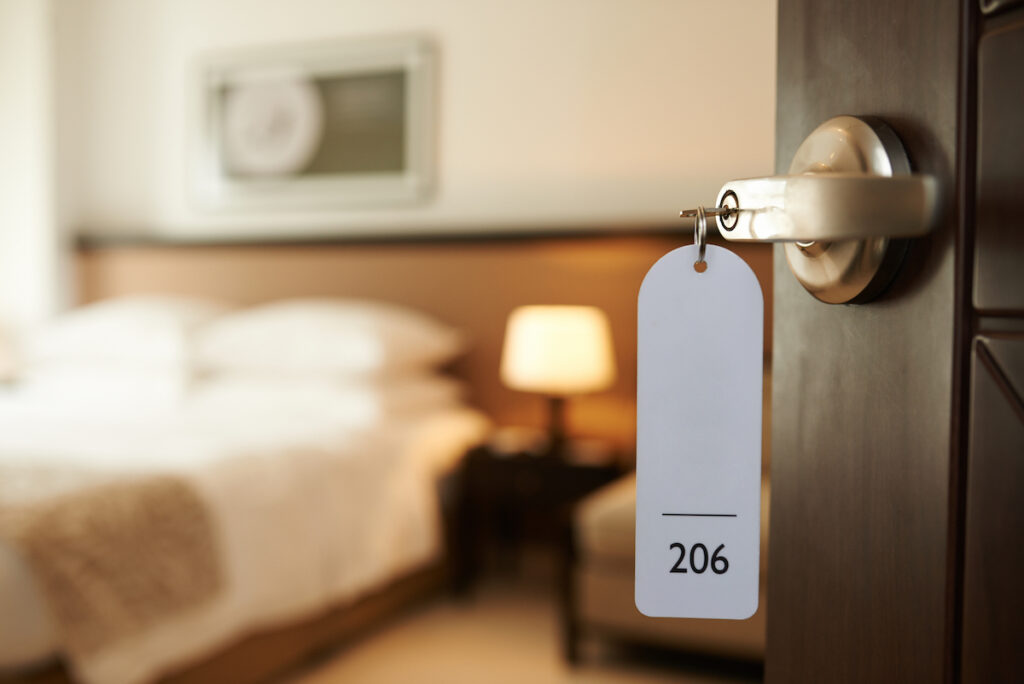
Brini Explains: Does Renters Insurance Cover Hotel Stays During An Emergency?
Does Renters Insurance Cover Hotel
Have you ever had one of those days when everything seemed to spiral out of control? It is the day when your to-do list has no end, and your brain balances a hundred things simultaneously. That’s exactly where I hold residence at the moment. So, as I attempted to catch up on some things, I had an interesting thought in all this chaos: what if, with this craziness, I need to leave my apartment due to unexpected damage? Would my renter’s insurance come to the rescue and pay me to stay in a hotel? Because that would make the situation even more stressful, am I right?
Now, maybe you’re wondering the same thing. If something happens to your home due to fire, water damage, or even a break-in, how do you know if your renter’s insurance will step in and help with temporary housing? You’re not the only one asking this. Most people don’t even know that renters insurance typically provides coverage for temporary housing, which could be the ticket to alleviating some of the stress if you suddenly have nowhere to sleep. So here it is. Lay it all on the line and see: Does the renter’s insurance pay for hotel stays during an emergency?

What Is Renters Insurance?
Before we explore whether your renters insurance covers hotel stays, let’s take a minute or two to discuss what renters insurance covers. Renters insurance protects renters from financial losses due to events like fire, theft or vandalism. It usually covers personal property, liability for injuries and additional living expenses (ALE), which will be important in this conversation.

Hotel Stays And Renters Insurance
So, is hotel stay covered under renters insurance? In short, yes, it could if your apartment becomes uninhabitable due to a covered event. If a fire occurs, for instance, or your apartment is flooded, you may need to stay temporarily in a hotel. Renters insurance can kick in to pay for the cost of staying in a hotel while your apartment is getting fixed.
Coverage You Need To Have In Renters Insurance
For hotel stays, the necessary coverage you will need is Additional Living Expenses (ALE). ALE assists in covering the costs of your temporary shelter, meals, and other essential living expenditures while your apartment becomes uninhabitable. But ALE isn’t unlimited in all circumstances, so you need to understand the policy limits and what it covers.
If your emergency leads you to require hotel accommodation, the first thing to do is contact your insurance company. Notify the authorities and give them an account of the damage. You’ll have to make a claim and provide evidence of your hotel stay costs — just as you would do with receipts. Be sure to note any other additional living expenses as well, as your policy may even cover those, too.
Let’s explore a couple of real-world examples in greater detail. If your apartment is damaged in a fire, renters insurance could pay for temporary housing, such as a hotel. Likewise, if a burst pipe causes water damage that renders your apartment uninhabitable, the ALE coverage would pay for a hotel stay. But the hotel costs may not be covered if the damage results from something not covered by your policy (say, a flood without flood insurance).
Though renters insurance saves the day when disaster strikes, it has both advantages and disadvantages. Of course, there’s the positive of knowing your temporary housing will have coverage. On the downside, wading through insurance claims can be a hassle, and the details of your policy are worth knowing. And that’s why it’s so important to review your renters insurance periodically.

Ensuring Hotel Stays Are Covered: A Quick Guide
Review Your Renters Insurance Policy
Read your renter's insurance policy carefully to know what’s covered, particularly regarding temporary housing and additional living expenses (ALE).
Understand Limits And Restrictions Of ALE
Review the policy for depletion potential limits on ALE coverage, such as maximums on what it will pay for per day or the number of days it will cover your stay.
Document All Damages In Detail
Mark all damage to your apartment, taking pictures, video and written notes as appropriate. This information will aid you in making your case for interim housing.
Save Receipts For Hotel Stays
Save all receipts and documentation for hotels or any extra living expenses. Your insurer will probably need evidence of these costs to pay your claim.
Get In Touch With Your Insurance Provider
Contact your insurance company first to find out what coverage is available for you, what it entails, and what restrictions or exclusions may apply before booking with a hotel.
Inquire About Coverage For Longer Trips
For example, if you plan to be displaced for a prolonged period, ask your insurer how long it will pay for your hotel stay and whether there are restrictions on the types of hotels you can stay in.
Clarify What’s Not Included In Coverage
Inquire whether there are any exclusions regarding coverage for temporary housing e.g., coverage applies only to specific emergencies, fire vs. flooding, etc.
Look For Coverage In Specific Circumstances
Your renter's insurance should cover the specific emergency that makes you in need of temporary housing. Not all circumstances might be covered, like unintentional destruction or flooding.
Update Your Policy Regularly
Ultimately, keeping your policy up to date ensures that changes in your living situation or changes to coverage limits are considered, especially in the event of something unexpected.
Understand Claims Processing In Depth
Also, know what to expect in an emergency by understanding the steps and timeline when filing claims for temporary housing.

When Renters Insurance May Not Cover Hotel Stays?
Renters insurance covers many potential emergencies, but there are also exclusions you should know about. If, for example, your apartment is damaged because of neglect (not fixing a leaky pipe, for instance), your claim could be denied. Or if you have an insurance policy that doesn’t cover certain kinds of damage — such as flooding from a source not covered by your policy — you may find yourself covering out-of-pocket hotel costs.
Conclusion

FAQ
After an emergency, call your insurer, report the damage, and submit receipts for hotel stays and other expenses. Follow up consistently to keep your claim moving.
Renters insurance will pay for hotel costs up to the limits of your policy’s additional living expenses (ALE) coverage. Check your policy’s limits, too.
ALE is a border term covering hotel stays, meals, and other living expenses. Temporary housing only pays for lodging expenses.
Read the coverage details in your policy, or call your insurance provider to find out whether you would be covered for hotel stays in the event of an emergency.
Some policies have limitations around where you can stay. Ask your insurance provider to make sure.

